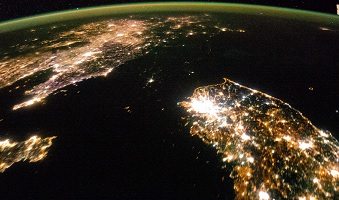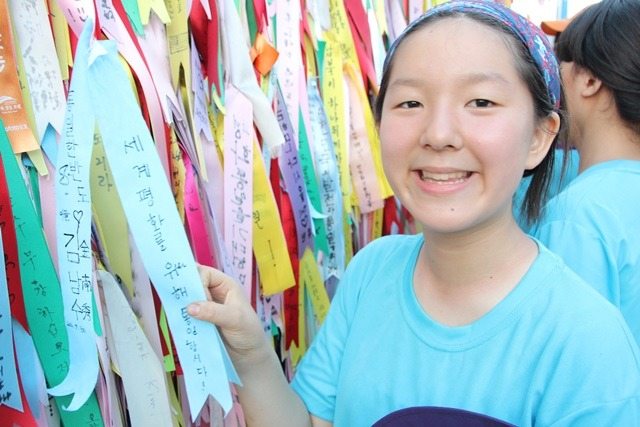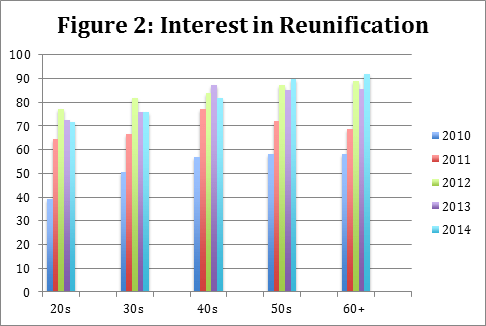
A NASA image of the Korean peninsula at night.
As Korea approaches its 70th year anniversary since its independence from colonial rule, Korean communities around the globe have plans to celebrate with commemorative events and programs. Yet, the “elephant in the room” is the one that asks: what about Korean unification?
An article in the Korea Herald laments the current trend among the young and pragmatic in South Korea, who weigh the costs and benefits to something that no longer seems plausible or even desirable. And perhaps in response to recent work by the civil society alliance, Action for Korea United, to produce a new unification song, the author of the article mentions how the song “Unity is our wish” has now come to represent an anachronism or a glaring symbol of the failures to unify the Korean peninsula.
Certainly, there have been many attempts to unify the North and South Korea. The horrors of the Korean War and its devastating aftermath stand as a symbol of the dangers and limits of a military-led approach to unification. Certainly both sides of the 38th parallel and even the world remains – and should remain – reluctant to ever again engage in such a strategy. There were any number of secret and public high-level, governmental talks throughout the years to do the same without much to show for it, as each side remains committed to its own goals and purposes. There was even the failed attempt to use an economic and humanitarian approach to unification in the “Sunshine Policy” during the presidency of Kim Dae Jung.
Yet through 70 years, none has brought us closer to unification. In fact, we might say that we are, in fact, much farther from unification, particularly when considering the lack of interest and passion for a united homeland among the younger generation. A survey in 2014 reports a fairly consistent trend of disinterest in unification among twenty-somethings compared to the older generations.
In the 70 years since the division of the peninsula, we have lost a sense of connection with our Korean brothers and sisters in the North. We have long allowed political, military and economic leaders – domestic and international – to dictate the shape and form of our nation with a sharply self-interested agenda that has been to the detriment of the greater Korean family. Without a cohesive sense of identity, we have prioritized our own well-being and in the process lost our own souls.
Extraordinarily high suicide rates, divorce rates, a nationwide obsession with cosmetic surgery, dwindling birth rate and the pursuit of material success at all costs appear to be the new Korea. The picture in the North is even more dismal. And one can’t help feeling a deep sense of loss in all of this and great anxiety for our future generations.
But this can all change. In fact, a more recent report shows a growing interest in reunification, in spite of the danger posed by an increasingly unstable North Korea. Many might point to the South Korean government’s efforts to promote unification as the cause of this shift in public opinion but it also reminds us that whatever the flaws in the South Korean democratic system, it is essentially focused on the will of the people. Collectively, the will of the people can and should influence public policy in pursuit of the greater good for all of society.

Action for Korea United volunteer at Imjingak Peace Park Credit: Global Peace Foundation
It also points to something that has been severely lacking in the previous attempts to unify the peninsula: the people. I.e., we need to engage in sustained, public and private conversations on what it is that we as Koreans around the world aspire to in reunifying our homeland and rebuilding a nation.
We have the ingredients to build a truly peaceful, prosperous society passed down through 5,000 years of history but it means nothing if we don’t take up the unique opportunity before us. We must start by dreaming our Korean Dream.

